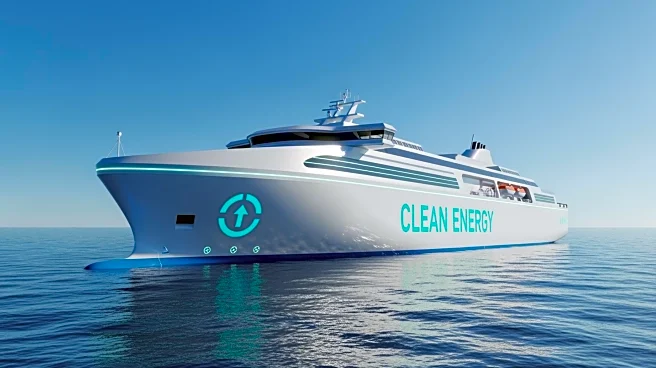What's Happening?
In October 2025, 30 new orders for alternative-fueled vessels were placed, according to DNV's Alternative Fuels Insight platform. The majority of these orders, 26, were for LNG-fueled vessels, primarily in the container segment. The remaining four orders were for methanol-fueled
vessels in the tankers segment. This brings the total number of alternative-fueled vessel orders in 2025 to 222, reflecting a significant shift towards sustainable shipping solutions. LNG-fueled vessels account for 67% of all alternative-fuel orders this year, followed by methanol, LPG, ammonia, and hydrogen-fueled vessels.
Why It's Important?
The increase in orders for alternative-fueled vessels indicates a growing commitment within the shipping industry to reduce carbon emissions and transition to more sustainable energy sources. This trend is driven by regulatory pressures, environmental concerns, and the need for shipping companies to future-proof their fleets. The dominance of LNG-fueled vessels suggests that LNG is currently the most viable alternative fuel, although interest in other fuels like methanol and hydrogen is also rising. This shift could have significant implications for global shipping, influencing fuel infrastructure development and regulatory frameworks.
What's Next?
The shipping industry is likely to continue investing in alternative-fueled vessels, with a focus on expanding bunkering infrastructure to support these new fuels. As more companies adopt alternative fuels, there may be increased collaboration between shipping lines, fuel suppliers, and regulatory bodies to ensure a smooth transition. The industry will also need to address challenges related to fuel availability, cost, and technological advancements to maintain momentum towards sustainability.















